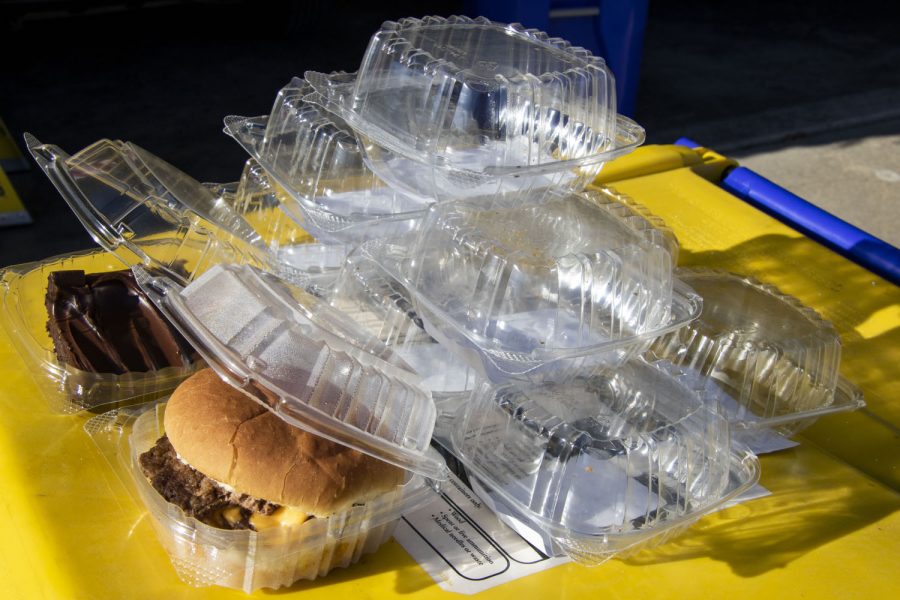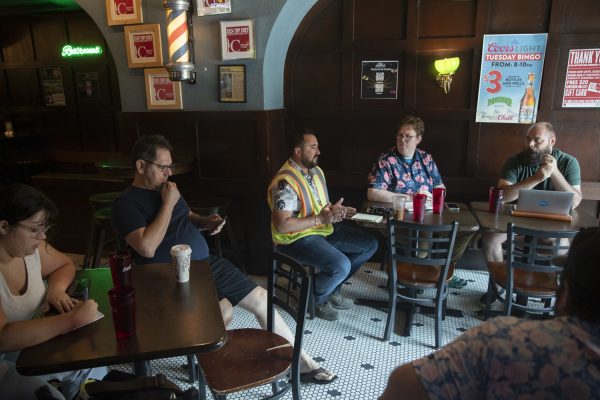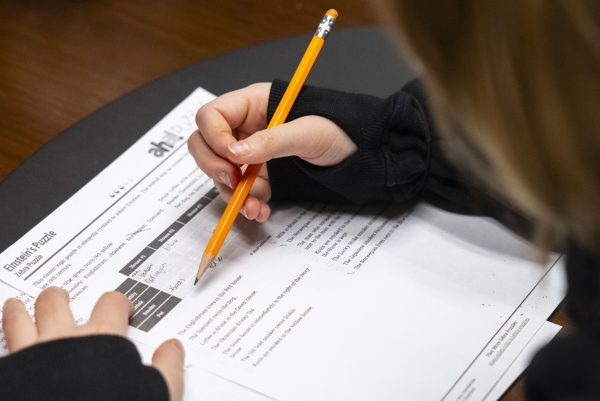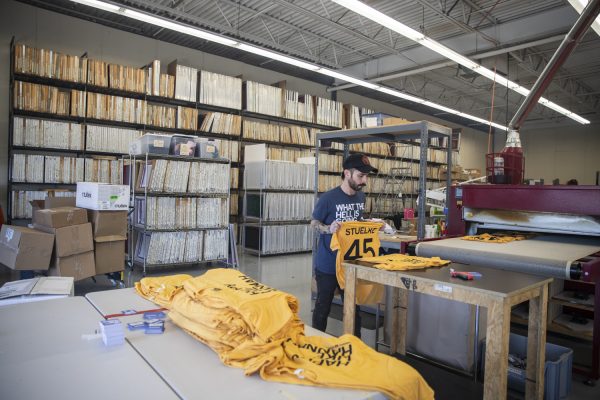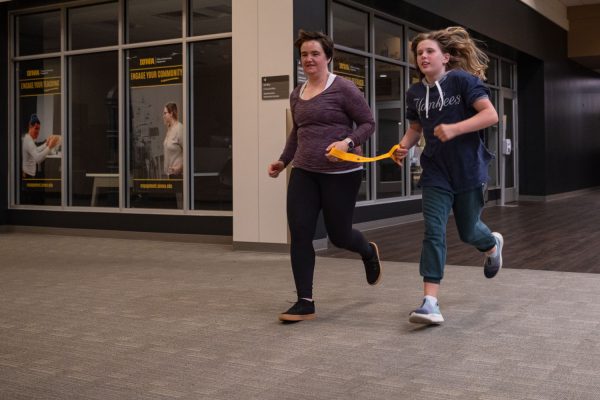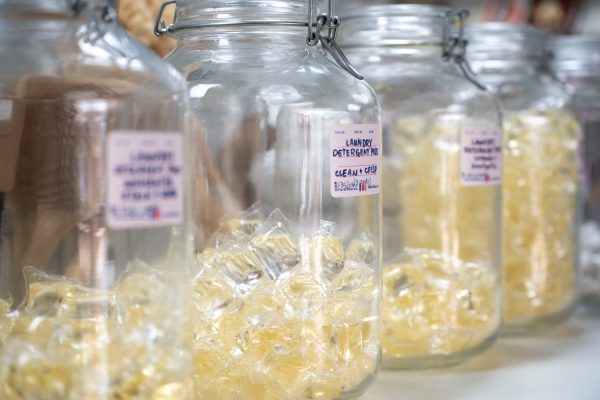Iowa City no longer recycling plastic clamshell containers
: With an increase in takeout orders and usage of clamshell containers to package and distribute these orders, the city found these containers negatively affect the quality of other materials processed within the recycling centers.
Photo Illustration by Jeff Sigmund
December 10, 2020
Iowa City will no longer accept plastic clamshell containers for recycling, both at the curb and at the city-run recycling centers.
Recycling Coordinator Jane Wilch wrote in an email to The Daily Iowan that these containers, which have been used to package takeout food, have caused a decline in quality of other plastics recycled at centers around the city. This prompted the city to discontinue their recycling eligibility, the city announced Dec. 3.
Wilch said that the pandemic has caused a spike in clamshell plastic use as restaurants have increased delivery and to-go orders.
“The pre-pandemic quantities of clamshells were manageable in the recycling loads,” Wilch wrote. “But with the spike in use and thus spike in prevalence in recycling loads, this low-grade plastic started to affect the quality and purity of plastic in the recycling process.”
She went on to write that companies that take recycling materials from the city are no longer accepting recycled material of such low quality.
Wilch added that she has seen many restaurants transition to more eco-friendly materials for takeout containers. However, this new change in recycling procedures will require restaurants using hard plastic clamshells to adjust.
“I think we have already seen many restaurants adapt and work to become more environmentally-conscious with use of fiber-based and compostable products, or taking steps to reduce where and when possible,” she wrote. “It is fair to say that some restaurants may have previously transitioned to hard plastic clamshells with the understanding that they were recyclable. As recycling markets change, we will find ways to evolve.”
RELATED: North Dodge Hy-vee recycling drop off center moving to Riverside Drive
Managing Partner of Pullman Bar & Diner Cory Kent said because more takeout orders increased the demand for the containers, they had to make several adjustments to the materials they were using to package and distribute takeout orders.
“In the past, we always used a recycled clamshell,” the restaurateur said. “We did gravitate towards a kind of a clear plastic container… A lot of it’s based on what’s available, and we’re obviously measuring cost, and we’ve since moved on to more of a recyclable cardboard box.”
COVID-19 has impacted the supply and demand of these clamshell containers, especially those made from recycled materials.
“We’re usually very aware of what we can and can’t recycle,” Kent said. “We want to try to use materials that can be recycled as much as possible, but sometimes we can’t get certain containers just because our suppliers are out or running low, so there that’s been a challenge over the last several months but for the most part, we’ve been trying to use things that hopefully can be recycled.”
Wilch said when discussing the recycling eligibility of a product, it is important to both consider the upstream and downstream of the product’s life – meaning both what went into making the product, and what happens with the product when it can no longer be used.
“Even the recyclable plastics have a limited ability to be recycled,” she said. “Therefore, this solutions discussion goes beyond how to increase recyclability for a fairly unsustainable material to begin with and shifts to exploring what options there are for a better, affordable, more sustainable alternative.”
Iowa City Climate Action Engagement Specialist Sarah Gardner wrote in an email to the DI that higher-quality plastic than those in clamshell containers are still unable to be recycled multiple times and will end up being diverted to landfills.
RELATED: UI changes dorm recycling program to help mitigate COVID-19 spread
“It’s easy to forget that even with high-quality plastics, you can’t recycle them over and over,” Gardner wrote. “Most plastics only get recycled once or twice before they can’t be remade into anything else anymore. So, with plastic in particular, we aren’t really keeping them out of the landfill forever so much as slowing down how long it takes them to get there.”
The pandemic may offer a chance for businesses a chance to reevaluate their material usage, she added.
“It’s also possible this moment could be a useful opportunity for each of us to be more aware of these containers and ask for alternatives,” she wrote. “Where we are able instead to use reusable containers or reduce the purchase of disposable plastic products overall is always going to be a better long-term solution.”
Gardner added that shifting away from these materials will both a positive, both financially and environmentally, for recycling centers within the city.
“If people are inspired to move away from using clamshell containers because they know they can’t be recycled, that would be a definite pro,” the specialist wrote. “Minimizing the number of items with low- or no-recycling potential in the materials we send to recyclers helps us reduce costs, which ultimately allows us to recycle more things overall. So, there are some pros, even if we hate to see these containers go to the landfill.”



